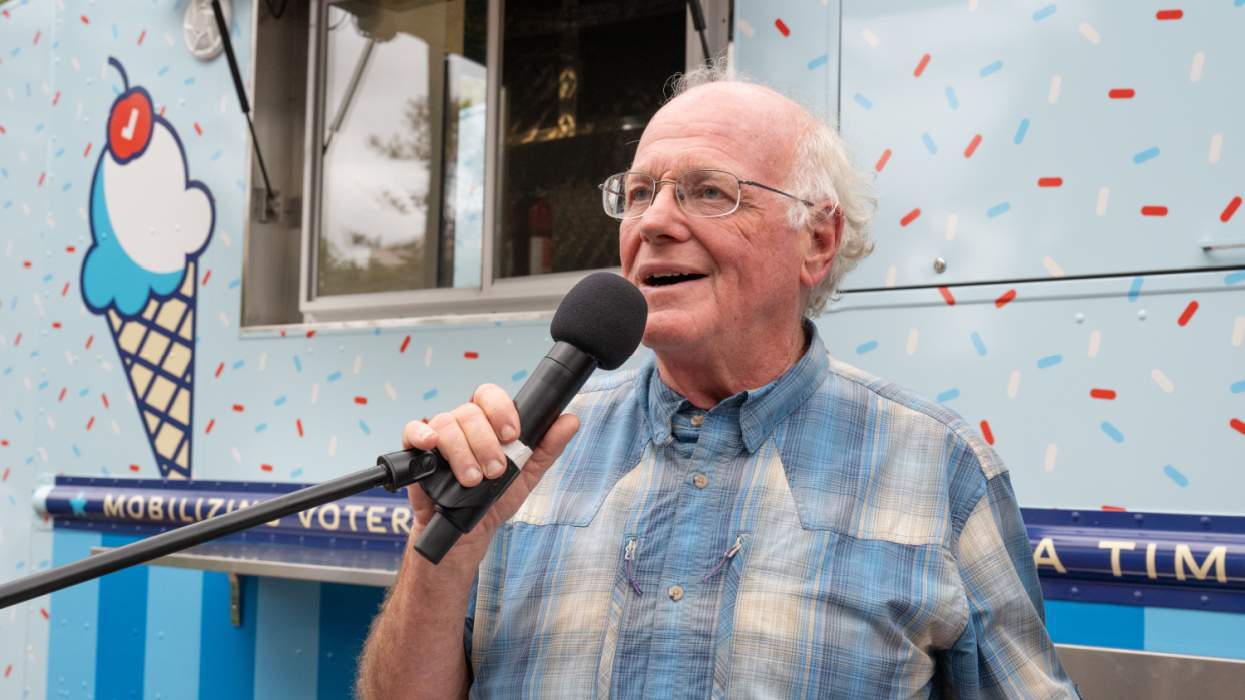Republicans in West Virginia have upped the hostility among those on the right toward transgender people. There, the LGBTQ+ community is currently grappling with significant legislative challenges that have the potential to impact the rights and lives of transgender individuals drastically.
Multiple draconian bills were introduced in the state’s legislature this week, with advocates drawing attention to their severe implications. One forces mental health professionals to “cure” transgender people from their gender identity, and another categorizes transgender people as “obscene material,” essentially making transgender individuals’ existence in many public spaces illegal, independent journalist Erin Reed, who specializes in transgender-related legal coverage, reports. Yet another criminalizes their presence near schools.
“Trans people know they are — there is nothing to ‘cure.’ The truth is, trans people of all ages are living happy, complete, and joyful lives — this contradicts the false narrative created around our community by extremist politicians," West Virginia activist Ash Orr told Reed. "This piece of legislation attacks our most basic values of privacy and control over our own bodies, and is based on misleading or even outright false ideas.”
Orr added: “This is a blatant attempt to criminalize and erase the trans community of West Virginia.”
Senate Bill 194 is particularly alarming. This proposed legislation seeks to impose a total ban on gender-affirming care for transgender individuals up to the age of 21. It also mandates that therapists and social workers in the state attempt to “cure” transgender identity. This bill extends the reach of a previous ban on gender-affirming care for those under 18, passed in 2023, and categorizes being transgender as a “sexual deviation.” Additionally, it broadens the definition of minors to include individuals up to age 21.
Conversion therapy, the discredited practice of attempting to change somebody’s sexual orientation or gender identity, has been rejected by scientists and declared harmful and dangerous. Also, it should be noted that science does not support the notion that being LGBTQ+ can be reversed. Just as gay, bisexual, and lesbian people can’t be “cured” of homosexuality, transgender people cannot be “cured” of being trans — and do not need to be.
The bill not only targets medical professionals involved in providing gender-affirming care but also extends to mental health care professionals and counselors. Under the provisions of this bill, any form of medical or therapeutic intervention aimed at facilitating gender transition for individuals under 21 years of age would be deemed unlawful.
The bill mandates severe penalties for practitioners violating these regulations, including the revocation of licensure and substantial civil penalties. Furthermore, Senate Bill 194 aims to prevent any state funds from being utilized, directly or indirectly, for gender transition treatment. The bill also includes whistleblower protection clauses, ensuring that individuals who report violations are safeguarded against discrimination.
Senate Bill 195 presents another troubling development. As reported by Reed, this bill classifies transgender individuals as “obscene” and proposes to bar “transgender exposure, performances, or display” to minors. This could effectively criminalize the public presence of transgender individuals, as avoiding being perceived as transgender by a minor would be nearly impossible.
The bill’s broad scope extends to adjusting the definitions and penalties within the existing legal framework, with particular emphasis on expanding the definition of indecent exposure to include transgender representations. Notably, the bill contains language considered a slur against transgender people.
Senate Bill 197 further exacerbates the hostile legislative environment for transgender individuals in West Virginia. This bill, which aims to prohibit “obscene matter” from being within 2,500 feet of a school, effectively criminalizes the presence of transgender people near schools or in front of minors, classifying it as indecent exposure. Coupled with Senate Bills 194 and 195, the proposed legislation forms a triad of measures that collectively threaten to significantly curtail the rights and freedoms of the transgender community in the state. Moreover, these bills not only broaden the scope of what is considered unlawful but also intensify the penalties involved, including increased fines and extended jail time for violations.
The implications of these bills are extensive and deeply concerning. They not only threaten the mental and physical health of transgender individuals but also signify a dangerous erosion of LGBTQ+ rights in West Virginia.
Their implications also extend beyond West Virginia, potentially leading to similar legislation in other states as Republicans continue their attack on one of the most marginalized communities in America.
“The rise in legislative attacks aimed at our community is concerning, but it shows the desperation of lawmakers and extremists who are against transgender rights,” Orr said.
















Charlie Kirk DID say stoning gay people was the 'perfect law' — and these other heinous quotes
These are some of his worst comments about LGBTQ+ people made by Charlie Kirk.